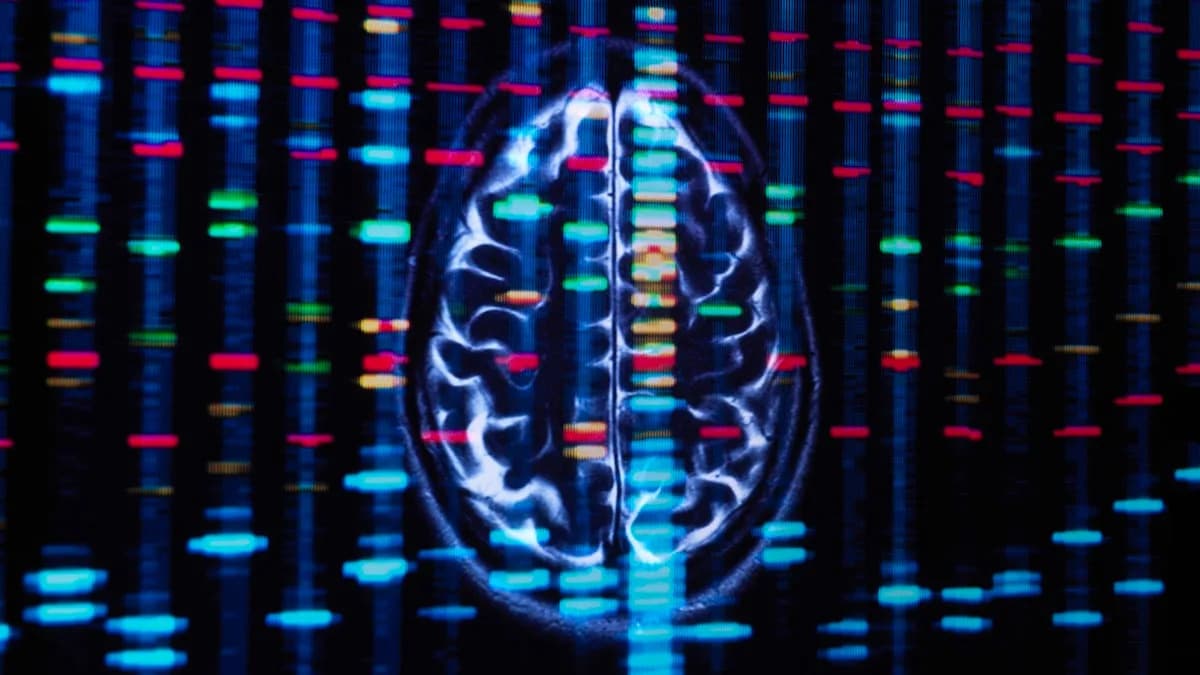Hitler’s DNA: Blueprint of a Dictator (Channel 4, Nov 15) reports that DNA from a bloodstained couch swatch linked to Adolf Hitler may indicate a form of Kallmann syndrome and unusually high polygenic risk scores for autism, schizophrenia and bipolar disorder. The producers stress the results are probabilistic, not clinical diagnoses, and experts in the film discuss both the science and its limitations. Blink Films says the sample underwent extensive verification, and ITV Studios will handle international distribution.
Channel 4 Documentary Claims Hitler May Have Had Kallmann Syndrome and Very High Genetic Risk Scores

Overview
Hitler’s DNA: Blueprint of a Dictator, a Channel 4 documentary premiering in the UK on November 15, reports that genetic analysis of material linked to Adolf Hitler suggests he may have had a form of Kallmann syndrome. The programme also reports unusually high polygenic risk scores for autism, schizophrenia and bipolar disorder, and says its tests do not support claims of Jewish ancestry.
Source of the DNA and verification
The producers say the sample came from a swatch of bloodstained fabric recovered from a couch inside Hitler’s bunker. Blink Films, the production company, describes an extensive verification process: repeated testing and independent re-analysis to confirm the sample’s provenance before conducting disease and trait profiling.
What the genetics reportedly show
According to the filmmakers, the genetic results suggest a form of Kallmann syndrome, which in males can be associated with low testosterone, undescended testicles and reduced genital size. The documentary also reports that Hitler’s polygenic scores place him among the top 1% for genetic risk of autism, schizophrenia and bipolar disorder.
"Hitler was in the top 1% for autism, top 1% for schizophrenia and top 1% for bipolar: His score is at the highest end of the polygenic scores for each of these conditions," the programme-makers say. They add that the findings are not diagnostic but indicate increased genetic predisposition.
Expert commentary and caveats
Experts appearing in the film include Professor Turi King, a geneticist known for work in ancient and forensic DNA, and Alex Kay, a historian of Nazi Germany. The film presents their interpretations of how genetic findings might connect to aspects of Hitler's behaviour and private life.
Turi King: "Based on these results, particularly with the Kallmann syndrome, if [Hitler] had been able to look at his own DNA... he almost certainly would have sent himself."
Alex Kay: "No-one has ever really been able to explain why Hitler was so uncomfortable around women throughout his life... But now we know that he had Kallmann syndrome, this could be the answer we've been looking for."
The documentary does emphasize that polygenic scores are probabilistic and are not clinical diagnoses. Polygenic risk scores estimate genetic predisposition based on current datasets and methods, and they do not deterministically explain behaviour, personality, or historical actions. The film includes discussion of the scientific limits and ethical questions involved in applying modern genetics to historical figures.
Production and distribution
Producers say their goal is to apply rigorous scientific methods to historical biography and to engage new audiences with World War II history through a novel approach. ITV Studios is handling international distribution, and Blink Films indicates other DNA-based historical projects are in development.
Final note
While the documentary presents provocative claims, readers should view the findings with caution: genetic data can suggest increased risk for certain conditions but cannot, on its own, provide definitive medical diagnoses or fully explain the complex causes of historical events and individual behaviour.
Help us improve.


































